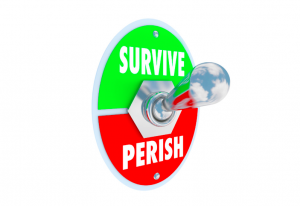Our everyday, personal experiences can tell us a great deal about the business shifts happening around us. For me, it was my experience getting ready for Summer’s arrive in Southern California.
 Spring has come and so has the time to spend my weekends replanting flowers, coaxing the grass back to its summer green, and making the garden a wonderful place of tranquility once again. Simply because I started with my repair work, I ended up at Orchard Supply Hardware, customer of a company that I write for that helps retailers manage customer loyalty. I was asked to sign up and so I did—a painless process that gave me the opportunity to be rewarded for repeat business. In fact, a few minutes after my purchase, a five-dollar coupon arrived in my email, along with a note thanking me for my business, which enticed me to go back again.
Spring has come and so has the time to spend my weekends replanting flowers, coaxing the grass back to its summer green, and making the garden a wonderful place of tranquility once again. Simply because I started with my repair work, I ended up at Orchard Supply Hardware, customer of a company that I write for that helps retailers manage customer loyalty. I was asked to sign up and so I did—a painless process that gave me the opportunity to be rewarded for repeat business. In fact, a few minutes after my purchase, a five-dollar coupon arrived in my email, along with a note thanking me for my business, which enticed me to go back again.
Nothing That Fancy
For my second stop to buy plants, I went to a well-known garden center chain where I was also asked to sign up for something, but this time for a mailing list. I had to ask what that would give me in return for my personal information, and I was told, “You’ll get email notifications of our latest specials.” Being in the business, I asked if that would include personalized offers or advice on gardening based on my purchases, to which the polite young lady replied, “No. I’m sorry. Nothing that fancy.”
I felt let down. I’m no professional gardener and I would welcome opportunities to buy complementary products that would make my roses bloom brighter and my grass survive the summer heat. What the young clerk called “fancy” is exactly what I want from any company that I provide with my personal details and purchase history.
Two Very Different Shopping Experiences
My expectations are no different than any other consumer. Why should I give up personal information if the benefit is solely for the retailer and not shared? Why would a merchant hold my personal information and transactional history for use in a way that I see no benefit?
These two shopping experiences are at the center of what’s happening in the customer loyalty space. Mailing lists are from a bygone era. Loyalty has become a more complex affair as simple points based on transactions breed transactional customers. Today’s competitive customer loyalty platforms meet customer expectations in the middle, where personal information is provided willingly because the benefits are shared and everyone wins.
For brands that seize the moment, these are the best of times. For those who fail to modernize and meet today’s customer expectations, failure is only a matter of time.
This post first appeared on the Loyalty Lab blog and has been lightly edited.




 All Things D
All Things D ARS Technica
ARS Technica Engadget
Engadget GigaOM
GigaOM Mashable
Mashable TechCrunch
TechCrunch The Verge
The Verge Venture Beat
Venture Beat Wired
Wired Chris Brogan
Chris Brogan Brian Solis
Brian Solis Chris Dixon
Chris Dixon Clay Shirky Blog
Clay Shirky Blog HBR Blog
HBR Blog IT Redux
IT Redux Jeremiah Owyang
Jeremiah Owyang Radar O'Reilly
Radar O'Reilly Seth Godin Blog
Seth Godin Blog SocialMedia Today
SocialMedia Today Solve for Interesting
Solve for Interesting The TIBCO Blog
The TIBCO Blog Lifehacker
Lifehacker
